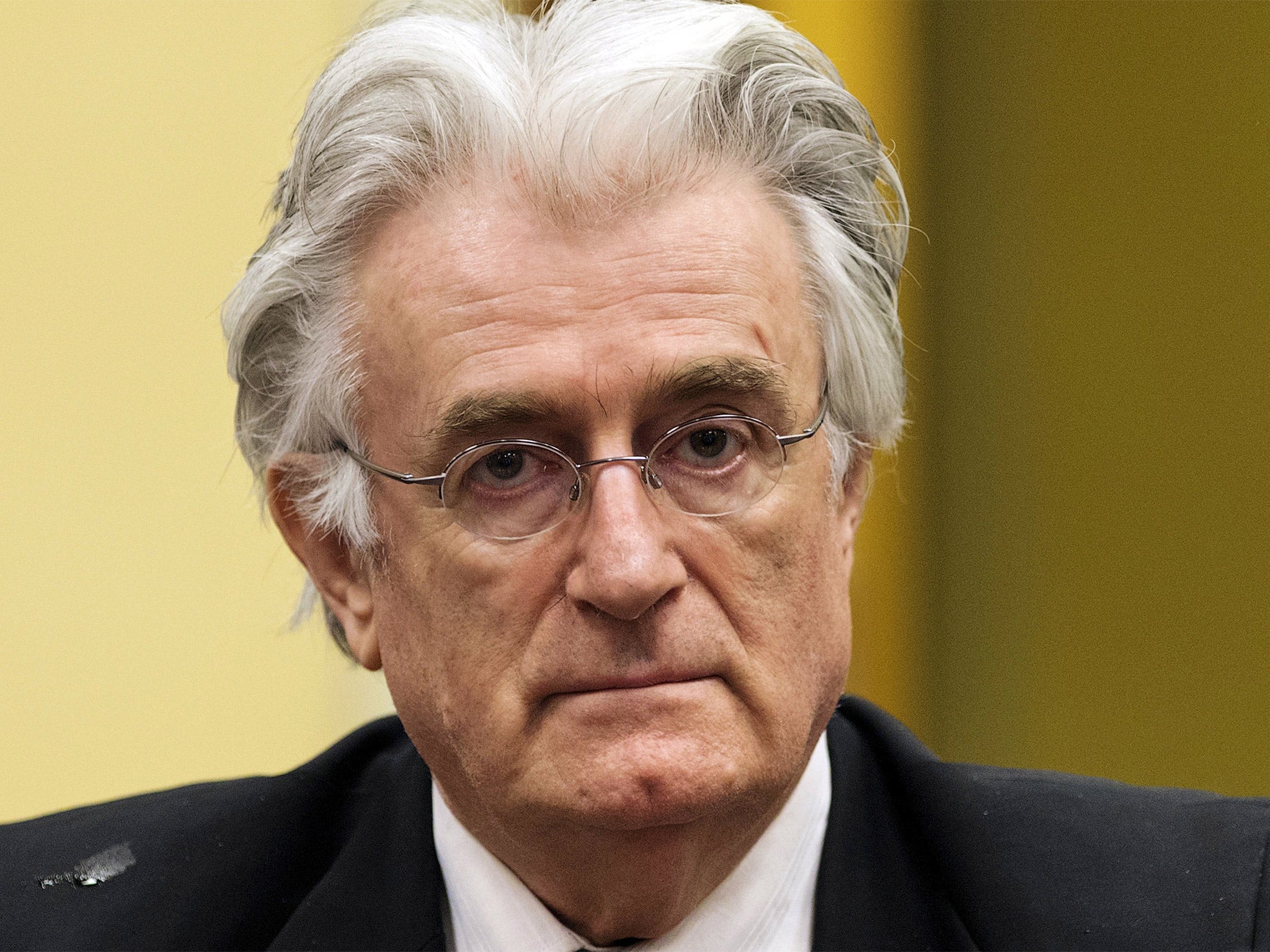Radovan Karadzic: Verdict expected in former Bosnian Serb leader’s war crimes case 21 years after he was indicted
Man many feared as ‘the master of life and death’ stands accused of genocide and crimes against humanity

Radovan Karadzic saw himself as locked in struggle to save the Serbs even as their forces were reducing the besieged city of Sarajevo to rubble.
On Thursday, 21 years after he was first indicted, a UN war crimes tribunal delivers its verdict on the man many Bosnians feared as the “master of life and death” during the 1992-95 war. The former Bosnian Serb leader has been on trial in The Hague since 2009, charged with war crimes and genocide against Bosnian Muslims and Croats. He faces a life sentence, if convicted.
A man who liked to recite his own poetry and hold court in a ski resort near Sarajevo, Karadzic was president of the self-styled Bosnian Serb Republic and supreme commander of its armed forces until he lost power in 1996. The next year he went into hiding, disappearing until his arrest 11 years later in Belgrade, where he lived disguised as a New Age healer.
He became one of the world’s most wanted men, swapping his trademark bouffant hairstyle for a long white beard and adopting a false name. The International Criminal Tribunal for the Former Yugoslavia charged him with 11 counts of genocide and crimes against humanity and violations of the customs of war, including the Sarajevo siege and the 1995 Srebrenica massacre – Europe’s worst atrocity since the Second World War.

After shaving and donning a suit, Karadzic regained the look of a persuasive demagogue, denying any wrongdoing and saying he should be praised for promoting peace, not accused of mass murder. “I have a clear conscience but a heavy heart because the war was not according to my taste,” he said during his trial.
Just as he manipulated Western envoys who visited him during the war, Karadzic, a trained psychiatrist, tried to drag out his trial, refusing to attend sessions and asking to defend himself. For 497 days in court, he became a familiar sight with his silver mane, peering through spectacles at some of the three million pages of evidence against him.
His aim was to pin blame on his wartime ally, Bosnian Serb general Ratko Mladic, who is also on trial for genocide, and to try to prove that some atrocities blamed on Serb forces were carried out by Bosnian Muslims against their own people.
His trial included testimony from 586 witnesses and the UN tribunal’s chief prosecutor, Serge Brammertz, complimented him on how he conducted his defence: “There are professional lawyers who have done a less good job.”
Karadzic remains popular in some parts. Milorad Dodik, the Serb Republic nationalist president, opened a student dormitory on Sunday named after him.Mr Dodik, who has repeatedly threatened the secession of the Serb region from Bosnia, said the moment was chosen ahead of the Karadzic verdict after a five-year trial that he said was “humiliating for the Serb Republic”. The humiliation may be compounded later this week.
Reuters
Join our commenting forum
Join thought-provoking conversations, follow other Independent readers and see their replies
Comments
Bookmark popover
Removed from bookmarks